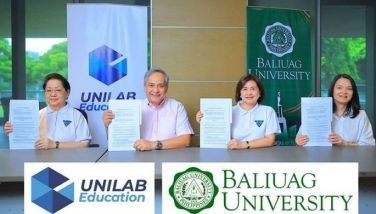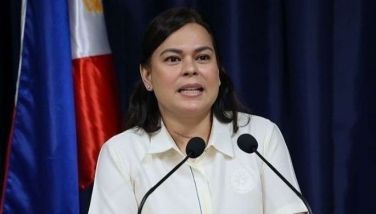Not quite a Bar scandal - My Viewpoint
Every time a "bar scandal" breaks out, the legal profession dies a little. Naturally, there will be calls for a hastening of the extinction of the species, echoing that character in Shakespeare who proposed that the first thing he wanted to do was to kill all the lawyers. In the past, rumors of leakages in exam questions or improper actuations on the part of Supreme Court employees or, in at least one case, a Justice himself, have led to damaged reputations, ruined careers and changes in the High Court itself. On the other hand, the profession also sometimes speaks in hushed tones about "perfect crimes" perpetrated in bar exams. The stories may be apocryphal. Then again, they might not.
In the current controversy over the 1999 examinations, the awful spectacle is that of a Chairman of the Supreme Court Committee on Bar Examinations being ousted just a couple of days before the official release of the results. I can't recall when this has ever happened and one can well imagine the humiliation it deals Mr. Justice Fidel P. Purisima, the ousted Chairman. While the case does appear to indicate a monumental lapse of judgment, perhaps even an inexcusable lack of elementary prudence and caution, I have difficulty elevating this matter to a case of fraudulent conduct.
Mr. Justice Purisima claims he found out that his nephew, a son of a brother, took the examinations only in January of this year. Some say this was unlikely, that he could not have been ignorant of that fact, particularly since the nephew had taken the bar exams several times before, and flunked each time. I don't know how close the Justice is to his brother and nephew, or whether there was reason for him at least to inquire about the status of his nephew's attempts to earn a license to practice. But if, and I admit this is a big "if," Fidel and Amante Purisima are not that close or if they don't regularly monitor the progress of each other's family members, it is not outside the realm of human possibility that the nephew's taking the bar exams -- yet again! -- would slip everyone's mind. Since I suspect that Justice Fidel and his brother are both grandfathers now, one could surmise that their time and attention would be more focused on their immediate families. I'm just thinking out loud.
But since Justice Purisima says he discovered in January, 2000 that his nephew had taken the 1999 bar exams, the more pertinent question is why the disclosure was made to the court only during its deliberations of March 16th. The subject of that special en banc session was the final report on the 1999 examinations submitted by the then Chairman Justice Purisima. One of the principal issues tackled, it now appears, was the exceedingly low passing rate of the examinees. Only 16.5% or 660 out of 3,978 examinees hurdled the exams. The nephew flunked again. We do not know yet whether he was in that penumbra, that fringe group that might have been benefitted by a lowering of the passing grade below 75%. We only have it on rumor and unverified "inside" info that the Justices considered that option in order to lessen the bloodletting and allow more hopefuls to become full-fledged attorneys-at-law. If Justice Purisima, as chairman of the bar exam committee, was the one that put that proposal forward, and if his nephew would have been benefitted by an adoption of that proposal, the circumstantial evidence would be damaging, to say the least.
The Supreme Court en banc, happily, decided not to compromise standards. This decision was reached after careful consideration of whether the "integrity of the last bar examinations" had been "impaired", "undermined" or "compromised". They concluded, after talking to all the bar examiners, that it had not. That is our consolation. That is also the reason this hasn't been branded a full-blown bar scandal yet. It does not appear that any hanky-panky infected the examinations themselves. Still, a consultative committee composed of three retired and highly respected Justices -- Ameurfina Herrera, Jose Feria and Camilio D. Quiason -- recommended "certain long-term and short-term actions and policies." Also, the Court's resolution of March 19th was "without prejudice to any further action that the Court may deem appropriate to take under the premises."
Unlike some other colleagues in the profession, I'm not about ready to join a lynch mob. Not just yet. We lawyers are specially taught to make conclusions and judgments only on the basis of facts, not speculation or innuendo. Not even on the alleged "reputation" of a judge for shady dealings.
Nevertheless, I must admit to a peculiar anguish over this case. I can't for the life of me understand why anyone would jeopardize the stature one has gained by membership in the Court by inexplicable lapses, if not more serious shortcomings, such as these.
Ricardo V. Puno, Jr.'s e-mail address: rvpuno@yahoo.com
- Latest
- Trending



























